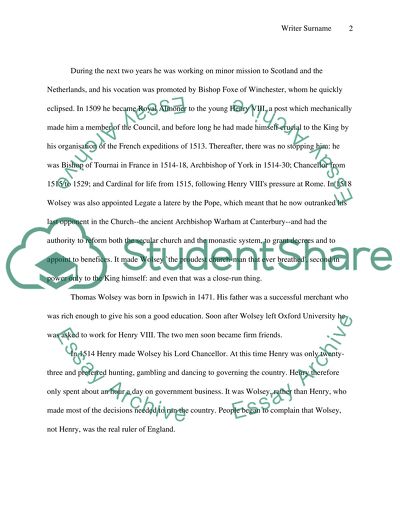Cite this document
(“Thomas Wolsey as the Key Figure in Church Essay”, n.d.)
Thomas Wolsey as the Key Figure in Church Essay. Retrieved from https://studentshare.org/biographies/1501548-thomas-wolsey-essay
Thomas Wolsey as the Key Figure in Church Essay. Retrieved from https://studentshare.org/biographies/1501548-thomas-wolsey-essay
(Thomas Wolsey As the Key Figure in Church Essay)
Thomas Wolsey As the Key Figure in Church Essay. https://studentshare.org/biographies/1501548-thomas-wolsey-essay.
Thomas Wolsey As the Key Figure in Church Essay. https://studentshare.org/biographies/1501548-thomas-wolsey-essay.
“Thomas Wolsey As the Key Figure in Church Essay”, n.d. https://studentshare.org/biographies/1501548-thomas-wolsey-essay.


